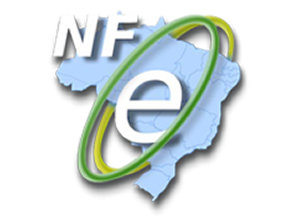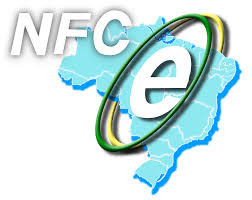 Since the beginning of April, a new layout for issuing electronic invoices is in use. The new version includes minor changes in relation to the previous format, such as the identification of the destination of the operation and the creation of a specific issuing purpose for returning goods. Adjustments like these are made from time to time, always based on requests and suggestions from taxpayers and associations interested in the topic. The idea is that the routine improvement of the system makes it meet the needs of those who use it and adapt to the evolution of the business world.
Since the beginning of April, a new layout for issuing electronic invoices is in use. The new version includes minor changes in relation to the previous format, such as the identification of the destination of the operation and the creation of a specific issuing purpose for returning goods. Adjustments like these are made from time to time, always based on requests and suggestions from taxpayers and associations interested in the topic. The idea is that the routine improvement of the system makes it meet the needs of those who use it and adapt to the evolution of the business world.
The Electronic Invoice - or NF-e, as it is also known - was officially instituted in Brazil in 2006. At the time, the main objectives were to increase transparency and curb tax evasion more efficiently. "This is very important to hinder unfair competition strategies", says Eudaldo Almeida, general coordinator of the National Meeting of State Tax Coordinators and Administrators (Encat). This important role of the NF-e made the ETCO-Brazilian Institute of Ethical Competition to embrace the project since its beginning, providing technical and institutional support to several governments for the development of the systems, in addition to constant feedbacks for its improvement.
Over the almost ten years of NF-e's existence in Brazil, it is already possible to see a series of advantages that it brought both to the collecting agencies, as well as to taxpayers and society in general. The first and most obvious impact is that, with the reduction of the need to issue paper notes - often in five carbon tracks -, there is an immense environmental gain. Since the system was implemented, more than 11 billion electronic invoices have been issued, avoiding the consumption of an immense amount of paper. In addition to the environmental impact, all this paperwork would have to be kept for five years, which meant that many companies had to maintain warehouses dedicated exclusively to keeping these documents. "Especially for large companies, the costs of managing all this logistics were absurd", says Álvaro Bahia, technical coordinator of Encat and national leader of the Nota Fiscal Eletrônica. As digital documents, electronic invoices are also much easier to search and can contribute to better business management.
For the public authorities, the digitalization of the note issuing system also represents great gains. One of the main ones is the fact that it is now possible to conduct an electronic inspection and move employees only where there is a greater possibility of deviations. “The reduction in tax evasion is a consequence of the control established by the NF-e”, says Davi Leandro Ruiz, consultant at IOB Sage, a company that implements NF-e systems. "The taxpayer obliged to issue an NF-e that does not issue it can be easily identified and penalized."
This advance also has repercussions with taxpayers, who start to be notified with greater speed when it is found an error made involuntarily. Before the appearance of the NF-e, only when a supervisor went to the company's headquarters would the mistakes be discovered. “Good taxpayers often made involuntary mistakes over the years until they discovered the problem,” says Bahia. "It is now possible to discover and correct the route much more quickly."
The possibility of making a more efficient inspection, increasing the chances that everyone will walk according to the same rules is one of the main gains of NF-e. "The level of information today is much more detailed, which closes the siege against the tax evader," says Evandro Ávila, CEO of Taxweb, a consultancy specializing in electronic invoices. Ultimately, by making life difficult for those who intend to take advantage of tax evasion, digital note issuing systems are an important contribution to fair competition, ETCO's main objective. That is why the institute has always insisted on being present in the debates on the subject and assisting in the implementation of the systems by the collection agencies of different states. "It is a very important support for the consolidation of the project", says Almeida.
As the use of NF-e advances, the system should play an even more important role in the transparency of the business world, especially in its relationship with governments. Some states, such as Rio Grande do Sul, Amazonas and Bahia are already testing the use of information gathered through tax documents to improve their bidding processes. Instead of conducting market research to decide the purchase prices for public agencies, these states use price statistics registered in the NF-e system, thus avoiding the practice of abusive charges in public purchases. These advantages are so many that the government has been investing in expanding the system to the most diverse areas. “Today, NF-e is already used in sectors where great resistance was expected, such as the agricultural area,” says Ávila. One of the most recent advances is the process of implementing the electronic Consumer Invoice (NFC-e), which is taking place in several states and will bring the benefits of NF-e to the final consumer. “Electronic notes still have many contributions to make to the country”, concludes Almeida.
The future of NF-e
The advancement of the electronic invoice can also contribute with several advances for the country. These are some of the points highlighted by the experts:
- Integration: The NF-e is part of a series of other tax obligations that are also being digitized, such as Transport Communication, for example. The integration of these different systems should make tax evasion and other spurious practices even more difficult.
- Simplification: The absence of issuing and keeping documents on paper makes it easier for companies to administer them. The analysis of the NF-e databases can also help in the construction of a simpler tax system, with a better adjustment of the taxpayer's obligations.
- Indicators: By recording all commercial movements in the country, electronic invoice systems will allow the government to analyze in real time the behavior of the economy, replacing monthly or even annual indicators that today determine the conduct of economic policy.
- Bids: The immense amount of data on prices in the bases of the collecting agencies has already been helping governments to improve their bidding processes. This practice is expected to become more common going forward.






